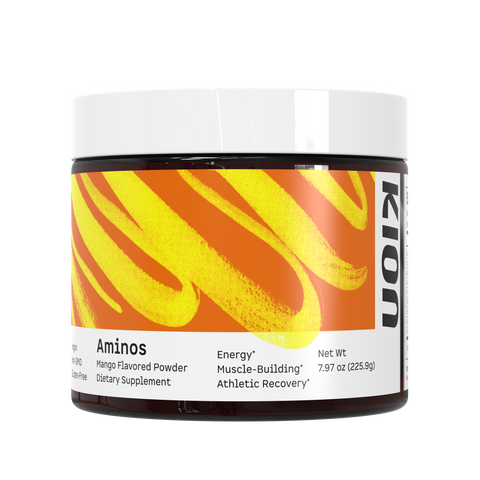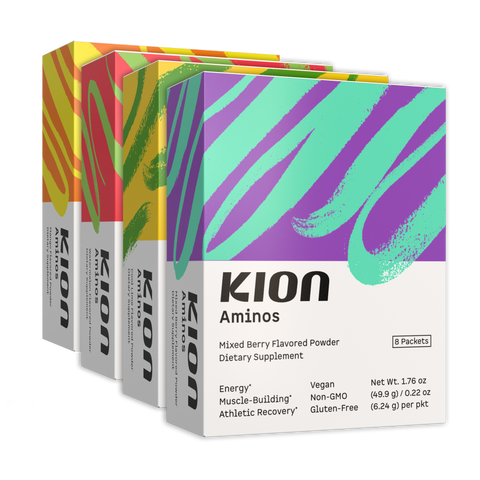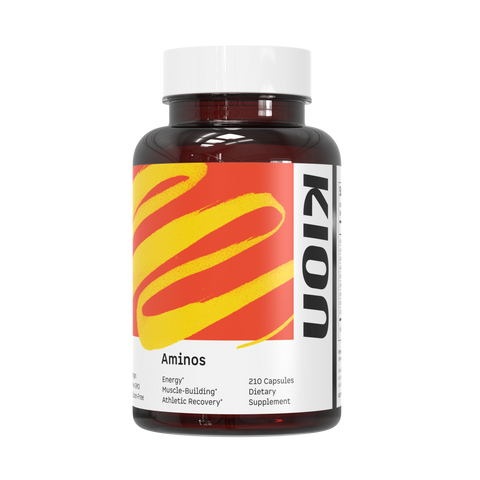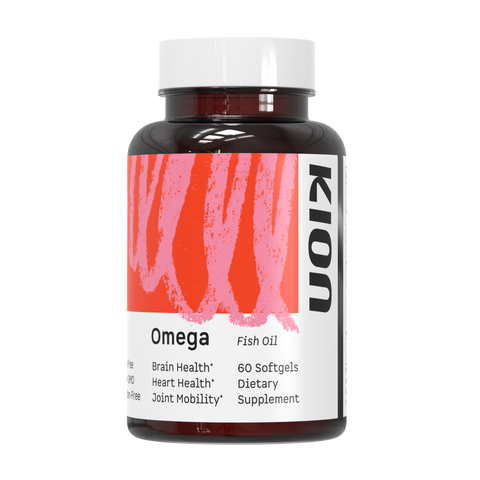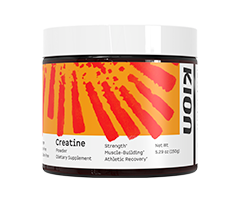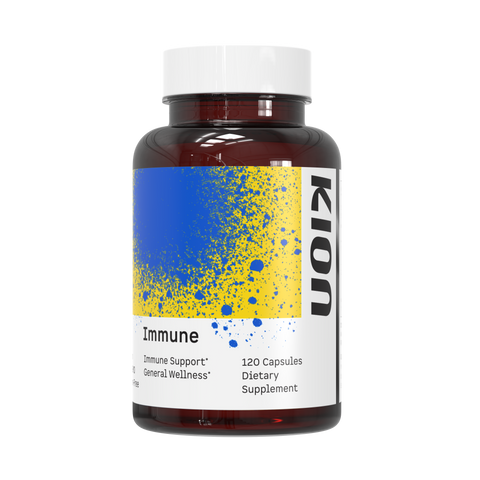In the quest to improve your health and fitness, we often focus on the basics: diet, exercise, and sleep.
However, there are some variables that are just as impactful to your health, but often forgotten because they can't be directly measured.
In fact, there's one super simple yet extremely powerful practice that can skyrocket your health and overall wellness in a number of scientifically validated ways. It's free. And it only takes a few seconds to have life-changing impacts.
It's gratitude.
Despite popular belief, gratitude isn't just saying “thanks” when the barista hands you your quad-shot sugar-free caramel latte.
Gratitude is not an action, although it is often expressed verbally and through reciprocity.
Gratitude is a mindset, an emotion, a deep-churning spring of mental and physical power just waiting to be unleashed.
Now, all of this may sound a little woo-woo to you. Or you may have never wanted to or tried to understand how your feelings and emotions impact your well-being.
But you can experience a much fuller life with greater health if you just take a few moments each day to fully appreciate what you have.
The Importance of Gratitude for Health
Gratitude is derived from the Latin root gratia, meaning grace, graciousness, or gratefulness.
All derivatives from this Latin root have to do with kindness, generousness, gifts, the beauty of giving and receiving or getting something from nothing. This means that the object of gratitude is others-oriented and that gratitude stems from the perception of a positive personal outcome, not necessarily derived or earned, that is due to the actions of another person.
Gratitude is an affirmation of goodness in the world. It results from a two-step cognitive process:
1) recognizing that one has obtained a positive outcome,
and 2) recognizing that there is an external source for this positive outcome.
There’s a consensus among the world’s religious and ethical writers that humans are morally obligated to feel and express gratitude in response to receiving a benefit, which is likely why gratitude is a highly-prized human trait worldwide and across a host of religions, from Judaism to Christianity, Islam, Buddhism, Hinduism and beyond. Gratitude is the very essence of what it means to be a human being.
There was an excellent study done, titled “Counting Blessings Versus Burdens: An Experimental Investigation of Gratitude and Subjective Well-Being in Daily Life,” on the effects of gratitude and positive emotion. Specifically, they examined “whether relative to focusing on complaints or on neutral life events, a focus on ‘counting one’s blessings’ leads to enhanced psychological and physical conditioning.”
The study made an important note that, although gratitude is usually associated with positive affective states, it also has a potential “negative” side. From the article:
To be grateful means to allow oneself to be placed in the position of a recipient - to feel indebted and aware of one’s dependence on others. Gratitude has an obligatory aspect. People are expected to repay kindnesses. Most people experience indebtedness as an unpleasant and aversive psychological state (Greenberg & Westcott, 1983). Thus, making people aware of the things in their lives to be grateful for might increase their recognition of the need to reciprocate, and people may resent these obligations and even report strong negative feelings toward their benefactors, even as extreme as hatred (Elster, 1999).
Having laid out the two main possible effects of gratitude expression, the article proceeds to explain the method of the study. Participants were placed in one of three conditions - the gratitude condition, the hassles condition, or the events condition.
In the gratitude condition, they were instructed to write down things they were grateful for, like “waking up this morning”, “the generosity of friends”, “to God for giving me determination”, “for wonderful parents”, things like that.
In the hassles group, they were told to take note of anything that was irritating, like “hard to find parking”, “messy kitchen no one will clean”, “finances depleting quickly”, “stupid people driving”, and “doing a favor for a friend who didn’t appreciate it” (an interesting relational side of gratitude you’ll learn more about in a bit).
In the events condition, participants were to list events and circumstances that affected them, like “talked to a doctor about medical school”, “learned CPR”, “cleaned out my shoe closet”, “flew back to Sacramento”, and “attended Whole Earth Festival”.
These event listings were categorized as either positive, negative or neutral. And, on top of listing blessings, irritants, or events, the participants were instructed to rate their mood, physical symptoms, reactions to social support received, estimated amount of time spent exercising, and two global life appraisal questions.
The study concluded that gratitude may help boost positive effect because the gratitude intervention elicited more gratitude and more positive effect than did the hassles condition. People in the gratitude condition were also more likely to report having helped someone with a personal problem or offered emotional support, which suggests that gratitude induction can result in prosocial motivation.
One of the things you ought to take away from this is that gratitude isn’t necessarily a natural result of good things happening to you. Likely, the people in each of the three conditions experienced similar things throughout the day - dealing with bad drivers, having someone hold the door open for them, being around family. There were good things and bad things each group could have focused on.
Your focus is the key. Your circumstances are nothing more than an opportunity to look on the bright side.
You can’t expect gratitude to just happen on its own. If you’re a half-empty person, you’re going to look at your circumstances as if they’re emptying your glass even more. But if you approach your day with a glass-half-full mindset, looking for the positive in everything, then every small, good thing that happens to you is going to contribute to your glass till your cup runneth over.
You and you alone have the power to flip a bad day on its head, to brighten your own life, by apprehending the tiny good things that when accumulated spill over and flood every aspect of your body, mind, and spirit.
And as you develop your capacity to see all the good each day, you’ll experience a number of life-enhancing benefits, which you’re now going to discover.
1) Gratitude Opens The Door To More Opportunities & Relationships.
Saying “thank you” is commonly considered to constitute good manners when someone does something nice for you. But showing appreciation goes far beyond just having good manners.
It can help you win new friends, according to a 2014 study published in Emotion. The study had each participant receive a note from a previously unacquainted peer that contained (or didn’t contain) an expression of gratitude for some benefit provided by the participant. After the study was completed, the participants had the chance to give their contact information to the peer, which served as a behavioral measure of affiliation. The study found that, consistent with theories that state that gratitude can lead to high-quality social bonds, the recipients of expressions of gratitude were more likely to seek a personal relationship with the giver of gratitude.
Having high-quality social bonds is critical to a long, healthy, happy life. Isolation and loneliness are conditions that are ravaging modern society but tend to fly under the radar. Ancestrally speaking, you’re hardwired to experience relationships in a particular way, interacting face to face and subconsciously sensing the invisible, chemical signals all humans create. In fact, the longest-lived people in the world all have this in common, that their social ties are like iron.
That’s because humans are social animals. It’s written in human genetics to crave relationships in which you both appreciate and feel appreciated. By starting each day with a mindset focused on the good and being grateful, you’ll optimize your inherent desire for strong relationships.
2) Benefits Of Gratitude On Physical Health.
According to a 2012 study published in Personality and Individual Differences, grateful people experience fewer aches and pains and they also report feeling healthier than other people. Not surprisingly, grateful people are also far more likely to take care of their health. They exercise more often and are more likely to attend regular check-ups with their doctors – not because they are sick, but because they have a greater sense of self-awareness and actually care about their bodies, which is likely to contribute to enhanced longevity.
Psychology Today has cited several studies that back this up, showing that people who report being more grateful also report feeling less muscle and joint pain and are far more likely to take care of themselves. Another 2015 paper in the Journal of Religion and Health found that those who are more grateful for who they are and what they have are not only more hopeful, but also physically healthier.
Sure, some of this can possibly be attributed to the fact that those who are feeling better physically tend to be more thankful and happy – but this is not always the case. As a matter of fact, dozens of studies have shown that when people actively take the time to list the things they are grateful for, they feel far better mentally and physically than participants who haven’t done the same.
In other words, gratitude’s benefits are not only correlational, but in many cases causal. A 2009 paper in Counselling Psychology Review reported that gratitude can act “directly, as a causal agent of well-being; and indirectly, as a means of buffering against negative states and emotions”.
Research also shows that when we think about what we are grateful for, the parasympathetic, rest-and-digest, calming part of the nervous system is triggered, producing a host of positive benefits for the body, including decreasing cortisol levels and increasing oxytocin, the powerful bonding hormone involved in relationships that makes us feel so good after touching, hugging or sexual intercourse.
One recent study from the University of California San Diego’s School of Medicine discovered that people who are more grateful actually have better heart health, less inflammation, and healthier heart rhythms. This means gratitude is also good for your heart. The study author reported that gratitude was found to ward off depression, stress, and anxiety, all of which can increase the risk of heart disease.
In this study, researchers recruited 186 men and women, average age 66, who already had some damage to their heart, either through years of sustained high blood pressure or as a result of heart attack or even an infection of the heart itself. They each filled out a questionnaire to rate how grateful they felt for the people, places or things in their lives. It turned out that the more grateful people were, the healthier they were, with a less depressed mood, better sleep and greater overall energy. When the researchers performed blood tests on the subjects to measure inflammation and plaque buildup in the arteries, they discovered significantly lower levels of these health issues among those who were grateful – an indication of better heart health.
The head researcher for this project, Dr. Paul Mills, then conducted a follow-up study to look even more closely at gratitude, testing 40 patients for heart disease and noting biological indications of heart disease such as inflammation and heart rhythm. Then he asked half of the patients to keep a journal most days of the week and write about two or three things they were grateful for. People wrote about everything, from appreciating children to being grateful for spouses, friends, pets, travel, jobs and even good food. After two months, Mills retested all 40 patients and found significant health benefits for the patients who wrote in their journals. Inflammation levels were reduced and heart rhythm improved. When he compared their heart disease risk before and after journal writing, there was a decrease in risk after two months of writing in their journals.
Finally, when it comes to the “love hormone” oxytocin I mentioned earlier, it turns out that one reason gratitude brings us closer together is that of its relationship to our oxytocin. Oxytocin is a neuropeptide, popularly known for its effects on pro-social behaviors, such as trust, generosity and affection. It’s involved in all kinds of human social interactions, from parenting to meeting a new acquaintance – but its baseline in the body is around zero and it needs an actual stimulus to cause its release.
In this study, researchers recruited couples in romantic relationships and invited them into the lab, where they were given an opportunity to say “thanks” to their partner, a situation in which oxytocin would be particularly likely to reveal its influence. In the lab, they were asked to choose something big or small (but something specific) that their partner did for him or her and for which he or she felt grateful. After they said thanks, both partners would privately rate their feelings of love, positivity, and responsiveness. While they filled out these self-reports, four “judges” submitted their own ratings on what they’d observed of these couples’ expressions of gratitude. Once everyone’s pencils were down, the partners would swap roles and repeat.
Each partner then got to be part of two different interactions: one in which he or she expressed gratitude and one in which he or she received an expression of gratitude. The researchers took a saliva sample, looking for a particular gene known as CD38 – a key regulator of oxytocin release and a big player in social interactions. They were hoping to find a genetic basis for the pattern of effects they’d observed as their participants gave and received thanks. This step confirmed their hypothesis: CD38 is, in fact, significantly associated with a number of positive psychological and behavioral outcomes that are all intimately related to the expression of gratitude!
The authors then wondered whether there is something specific about our oxytocin system that promotes social bonds or whether it be the case that saying thanks, generally speaking, feels good enough to reinforce our relationship with the person with whom we’re sharing this joy.
So they then ran a different study. This time, they didn’t ask participants to say thanks. Instead, they asked them to share one personal positive event. Like those in the first study, participants did indeed feel joy and enthusiasm. But, unlike in the first study, no pattern emerged at a genetic level. In this case, the presence of CD38 could not systematically predict the presence of these positive feelings.
This means the oxytocin system isn’t just selective toward joy or feeling good. It’s actually selective toward something specifically about gratitude, probably to the extent that sharing gratitude – in this case essentially saying that “my happiness is due to your role in my life” – recognizes our social or relationship interdependence, and while this study isn’t the first to suggest that we’re social creatures, it is perhaps the first to suggest that our emotional response to someone sharing a kind word or deed is deeply rooted in our bodies and is part of our evolutionary history.
From a decrease in cortisol, to a massive drop in inflammation, to a boost in feel-good hormones and more, there is a drastic, measurable physical and physiological benefit to being grateful that will lead to a much healthier, happier life.
3) Gratitude Improves Psychological Health And Mental Strength.
Perhaps not surprising, the benefits of gratitude reach far beyond the physical. A grateful mindset reduces a multitude of toxic emotions, from jealousy and resentment to frustration and regret. Robert Emmons, Ph.D., a leading gratitude researcher and author of the excellent book “The Science of Gratitude”, has conducted multiple studies on the link between gratitude and well-being. His research confirms that gratitude increases happiness and reduces depression. In fact, happiness itself is estimated to be under personal control, just like gratitude. You can indulge in small pleasures for yourself (like a warm bath), get absorbed in challenging, fulfilling activities, set and meet goals, maintain close social ties, and find purpose beyond yourself. And, these things will give you even more things to be grateful for!
Gratitude also increases overall mental strength. For years, research has shown gratitude not only reduces stress but may also play a major role in overcoming trauma. One of the studies mentioned above, Counting Blessings Versus Burdens, mentioned that gratitude was a major contributor to resilience following the terrorist attacks on September 11. It also mentioned that people with neuromuscular diseases who kept “gratitude journals” reported a greater sense of well-being and more positive moods at the end of the study, compared with those who didn’t make such lists. A 2006 study published in Behavior Research and Therapy found that Vietnam War veterans with higher levels of daily gratitude experienced lower rates of post-traumatic stress disorder (PTSD).
All of which means that being aware of everything you have to be thankful for - even during the worst times of your life - fosters an intense resilience that helps you battle stress and get through tough times.
4) Gratitude Enhances Empathy And Reduces Aggression.
Grateful people are more likely to behave in a prosocial manner, even when others behave less kindly, according to a 2012 study by the University of Kentucky. Study participants who ranked higher on gratitude scales were less likely to retaliate against others, even when given negative feedback. They found that gratitude motivates people to express sensitivity and concern for others, as well as reduce aggression towards others. An action as simple as writing a letter or even just mentally taking note of your blessings can be enough to make you nicer.
Empathy is crucial to maintaining healthy relationships, which, as you’ve already learned, is itself an integral aspect of a long, happy, healthy life. Empathy is the experience of understanding another person’s condition from their own perspective. You place yourself in their shoes and feel what they’re feeling. Humans have a special capacity for this due to the existence of what are called “mirror neurons”, which react to and reproduce emotions expressed by others. So by participating in daily gratitude exercises, you can kill two birds with one emotion - reducing aggression and fulfilling your innate desire for strong healthy relationships, because as people see you acting kindly, their own mirror neurons will kick into gear and you can watch the love and thankfulness spread.
5) Benefits Of Gratitude On Sleep
According to a 2011 study published in Applied Psychology: Health & Well-being, writing in a gratitude journal (which you’re going to learn much more about in a bit) for just 15 minutes a day, right before going to bed, may help you sleep better and longer. The study observed the effects of gratitude intervention (alongside constructive worry and imagery distraction) on university students, who are constantly running into sleeping problems due to racing minds filled with stimulating thoughts and worries. They found that the gratitude intervention just as much as the other two approaches helped the university students calm down, quiet their minds and sleep better.
Sleep is absolutely critical to maintaining health and well-being. There are three primary physiological processes your body performs that impact your health and longevity: defending itself, purging itself, and repairing itself. The third process, repairing, happens at peak efficiency while you’re sawing logs. When you sleep, your body rebuilds damaged muscle, damaged tissue, fights inflammation, restores the brain, and consolidates information in your memory. Great sleep launches you out of bed with indomitable purpose and energy, so you can wake up and fully appreciate the blessings life will bring.
6) Gratitude Improves Self-Esteem.
A 2014 study published in the Journal of Applied Sport Psychology found that gratitude increased the participating athletes’ self-esteem, which is an essential component to optimal performance, whatever it is that you do. Self-esteem is essentially a value judgment expressed by the attitudes that the individual cultivates for him or herself. But it results from the interaction of humans with the environments they encounter during the process of social construction, with self-assessment of their skills, accomplishments, experiences, and representations. Which means that there’s a direct correlation between gratitude and self-esteem.
One study observed the relationships among gratitude, self-esteem, depression, and suicidal ideation among undergraduate students. They found that gratitude had a direct effect on individual students’ self-esteem, depression, and suicidal ideation. In addition, it had an indirect effect on their suicidal ideation via self-esteem and depression, and self-esteem had direct effects on individuals’ depression. Self-esteem is a powerful tool by which you improve your life, and gratitude, the driving force.
Other studies have also shown that gratitude reduces social comparisons. Rather than becoming resentful toward people who have more money or better jobs - a major factor in reduced self-esteem - grateful people are able to appreciate both their own and other people’s accomplishments, which will ultimately lead to greater interpersonal relationships, greater empathy, a more pronounced feeling of happiness, and, finally, a life defined by positive emotion and long-lasting well-being.
Doubling-Up on Spirit-Mind Optimization
Now, take all these benefits of gratitude expression, and combine them with the power of daily habits.
The easiest way to do this is to wake up every single morning and write down just one thing that you’re grateful for. One thing. Every day, without fail, You can use a notebook app on your phone, you can write it down on a sheet of paper, or you can have a full-on journal that you use. Just write down something, or someone, that you’re happy to have in your life. And later on in the day, you might think of something else that you’re grateful for, or maybe talk about gratitude around the dinner table with your family.
But even if you don’t do all that, explicitly stating one thing that you’re grateful for as soon as you wake up (and perhaps again before going to bed) can change the rest of your day, elicit a host of positive emotions that have been scientifically shown to affect your body and health, and likely put a big grin on your face. This will have a dramatic impact on your mind, on your body, and on your spirit.
And by the way, we're grateful for you taking the time to read this. Thank you.



